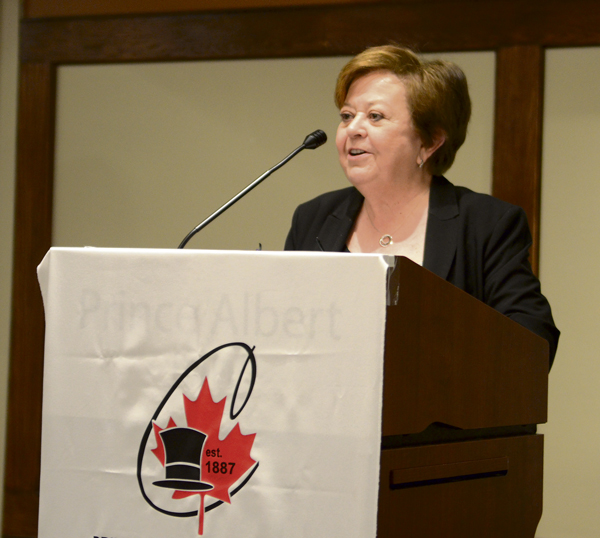
Homebuilders associations and the Saskatchewan Heavy Construction Association are split on a provincial budget measure intended to kickstart construction in the province while also helping out new homeowners.
Last week’s spending estimates included a new PST rebate for new homes purchased after March 1, 2020. It was designed to support residential construction and improve housing affordability. It will provide a rebate of up to 42 per cent of PST paid on the purchase of a newly-constructed home, valued up to $450,000. It excludes the cost of land, which is not subject to PST.
The policy is set to sunset in April of 2023. It’s set to operate similar to a GST rebate that will phase down for houses valued between $350,000 and $450,000.
Speaking to reporters last week, provincial Finance Minister Donna Harpauer said the rebate will help the construction industry while also helping families afford a newly-built home.
“We have said that we would revisit all of our tax decisions each and every year. There has been quite a stress on the housing industry,” Harpauer said.
In their contentious 2017 budget, the Saskatchewan Party added the six per cent PST to construction. Construction had previously been exempt.
Industry members had repeatedly called for the move to be reversed.
Speaking to reporters, Harpauer denied the PST change had an impact on the housing market, attributing struggles instead to the economy and to the federal government’s new mortgage stress test, which made it harder for some people to take out a mortgage on a new home.
She said it was the home builders’ associations who came up with the rebate.
“This was a proposal that they came forward with that I thought was doable in our fiscal situation,” she said.
“At the time, I was viewing it from the affordability side because the stress test was eliminating people from qualifying. Now, I’m viewing it quite frankly as an economic stimulus.”
N a press release, the Saskatoon (SRHBA) and Regina Home Builders’ Association (RRHBA) called the tax rebate a “welcomed” tool.
“This program was not an easy decision for the Government that has significant and unprecedented demands on their financial resources by every sector of the economy,” they wrote.
“We are very appreciative (of) Harpauer, and her team at the Ministry who have been very welcoming to our professional associations over the past year and a half, listening to our concerns and allowing us to work with them on the development of a solution that would also bring value to our economy.”
“We are quite pleased by the Government’s approach today, amidst the unprecedented challenges we are all experiencing”, comments Chris M. Guérette, CEO of the SRHBA. “Certified builders in this province are ready – when the time is right – to get to work and start contributing to our recovery.”
“Considering the significant headwinds on the new home market over the past 3 years,” said Stu Niebergall, president & CEO of the RRHBA, “We are very pleased this rebate will allow hard-working Saskatchewan citizens, especially young families and newcomers, to fulfill their dream of homeownership. At the same time providing some much-needed relief for the residential construction industry that as shed thousands of jobs in the last few years.”
“While our certified builders have shown tremendous resiliency in challenging times, they will need assistance to answer the call to continued growth in our province,” said Guérette, “and I have no doubt they will answer that call in full force and become an accelerator to the excellent growth plan submitted by our provincial government earlier this year.”
Not everyone, however, agreed.
In a press release of their own, the Saskatchewan Heavy Construction Association called the “status quo” budget one that could mean “doom” for the industry.
The Saskatchewan Heavy Construction Association (SHCA) said they didn’t expect any surprises.
The SHCA, though, acknowledged that with COVID-19, it could have been worse. It cited budget drops for the Ministry of Highways and Infrastructure as well as the carry-over in major projects from the previous year.
The province explained that the highways budget drop was due to the completion of the Regina Bypass.
The SHCA said that neighbouring provinces Alberta and Manitoba are struggling with member retention because investment in infrastructure isn’t there.
“The challenge for our industry is not the dollars being spent but the number of kilometres the industry has the capability to build,” said Shantel Lipp, SHCA president.
“If there is no commitment to increasing the number of kilometres that the government is going to build or maintain, we’re going to see more companies go out of business.”
Lipp said several Sask-based contractors closed in 2019, and this budget could mean more will soon close up shop.
“Competition levels are going to be incredible this year because everybody is looking for work and everybody is struggling to find work,” she said. “Any prolonged delays in building is only going to cost taxpayers more and going to deplete the capacity of the industry.”

